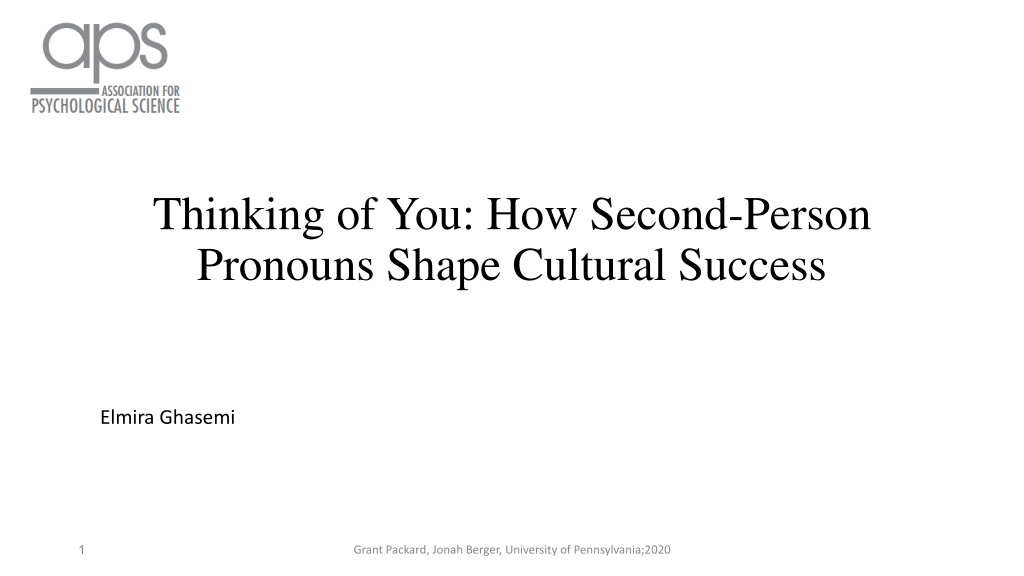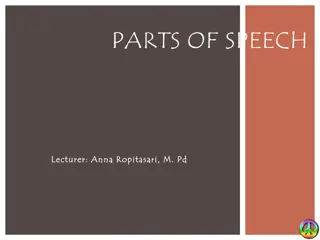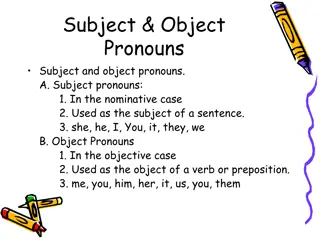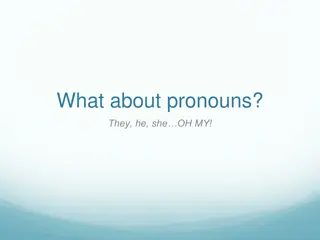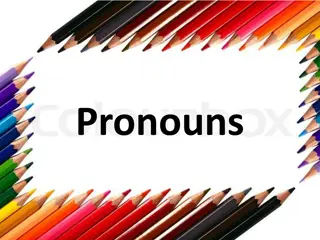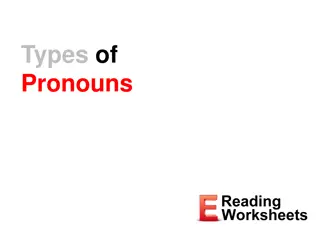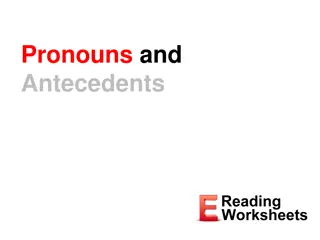Influence of Second-Person Pronouns on Cultural Success
Researchers explore the impact of second-person pronouns in song lyrics on cultural success. The use of "you" words influences audience engagement and connection, affecting the popularity and likability of songs. Studies suggest that incorporating second-person pronouns can activate personal reflections in listeners, leading to increased liking and purchase intent.
Download Presentation

Please find below an Image/Link to download the presentation.
The content on the website is provided AS IS for your information and personal use only. It may not be sold, licensed, or shared on other websites without obtaining consent from the author. Download presentation by click this link. If you encounter any issues during the download, it is possible that the publisher has removed the file from their server.
E N D
Presentation Transcript
Thinking of You: How Second-Person Pronouns Shape Cultural Success Elmira Ghasemi 1 Grant Packard, Jonah Berger, University of Pennsylvania;2020
Some researchers have theorized that the narrative arts have a social role, fostering a sense of connection with other people. In modern English, these pronouns are represented by four variations of the word you (i.e., you, your, yours, and yourself ). Their fundamental role is to signal attentional focus ,that a speaker is directly addressing cognitively or physically present people or their things. 2 Grant Packard, Jonah Berger, University of Pennsylvania;2020
you words can directly addressing the audience as the subject. (You are slicing a tomato.) you words can convey norms or imperatives. (You should work out more.) Use of you words offers insight into people s relationships with others. (I will always love you.) 3 Grant Packard, Jonah Berger, University of Pennsylvania;2020
Hypothesis 1: songs that use more second person pronouns (i.e., you ) should be liked more and purchased more. Hypothesis 2: second-person pronouns activate thoughts of someone in the audience s own life (other-activation). 4 Grant Packard, Jonah Berger, University of Pennsylvania;2020
Study 1 Hypothesis 1: identify the percentage of words in each song that are second-person pronouns Hypothesis 2: how you is used: subject-case uses object-case uses result: songs that used you words more often were more successful. songs that used you more frequently as an object, were more popular. 5 Grant Packard, Jonah Berger, University of Pennsylvania;2020
Study 2 Hypothesis 1: This study used amore controlled design to test the relationship between second- person pronouns and song success at the individual level and beyond hit songs. Hypothesis 2: how you is used: subject-case uses object-case uses Whether the lyrics encouraged people to think about someone from their own lives results: revealed that songs that contained more second-person pronouns were liked more. consistent with Hypothesis 2, this effect was driven more by other-activating uses of you (i.e., object case rather than subject case) and was mediated by second- person pronouns ability to evoke a personal other. 6 Grant Packard, Jonah Berger, University of Pennsylvania;2020
Study 3 Hypothesis 1: This study directly tested second-person pronouns causal impact by manipulating them in a fictitious song, measuring their impact on liking. second-person-pronoun condition no-personal-pronoun condition third-person-pronoun condition Hypothesis2: subject-case uses object-case uses Whether the lyrics encouraged people to think about someone from their own lives result: Second-person pronouns made people like a fictitious song more, and this was driven by the activation of thoughts of someone in their own lives. 7 Grant Packard, Jonah Berger, University of Pennsylvania;2020
Study 3 Hypothesis 1: This study tested whetherthe results held across a larger sample of different songs(5 song: two real songs, three songs with fictitious lyrics). second-person-pronoun condition no-personal-pronoun condition third-person-pronoun condition Hypothesis2: Whether the lyrics encouraged people to think about someone from their own lives result: revealed that, using second person pronouns enhanced song liking. Replicating the results of Studies 2 and 3, these effects were driven by other- activation. 8 Grant Packard, Jonah Berger, University of Pennsylvania;2020
The present research which second-person pronouns engage listeners. Songs with more second-person pronouns were liked more because you invoked another person in the listener s mind. reveals a novel psychological mechanism by This mechanism highlights the importance of the situated, or contextual, meaning of language 9 Grant Packard, Jonah Berger, University of Pennsylvania;2020
